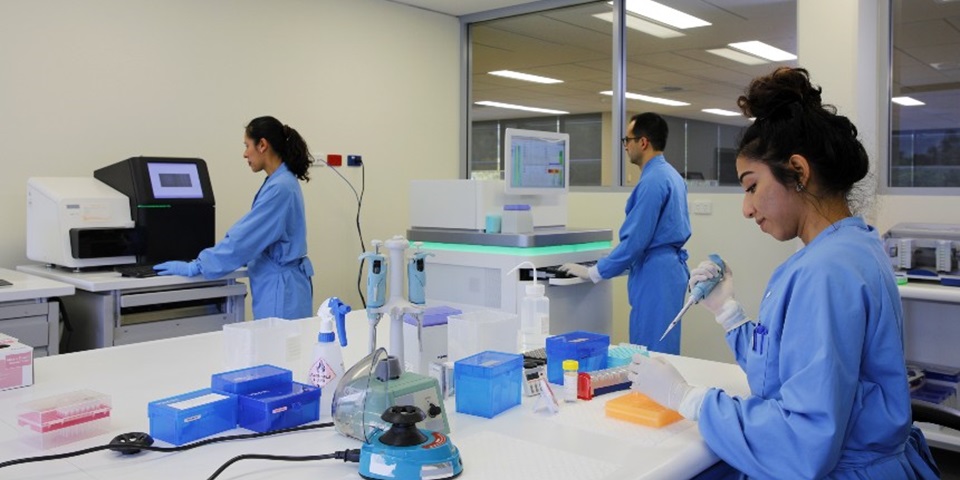News
Powering COVID-19 research through genomics

The Genomics Core Research Facility at Murdoch University is playing a large role in progressing COVID-19 research globally helping scientists to better understand the genetics behind the virus.
The COVID-19 pandemic has become one of the defining global challenges of our time. Its aggressive virality and often asymptomatic nature has created the need for an urgent health response.
From detection tests to vaccines, researchers are dedicating their time and resources into better understanding how to reduce the impact of COVID-19 on global health.
The Genomics Core Research Facility at Murdoch's Health Futures Institute plays a significant role in progressing COVID-19 research, helping scientists around the world dive into the complex genetics behind the virus.
Associate Professor Abha Chopra explained understanding both the virus and host genomics is an important step as the SARS-COV-2 virus is constantly changing with new strains being borne.
We are now seeing people who were infected at the start of the pandemic experience a second infection and have a completely different response, suggesting the immune system is learning and the virus is potentially adapting.”
Dr Chopra added that one of the biggest challenges to tackling an adaptable virus is understanding the genetics and evolution of the virus as it moves across the globe.
“We are fortunate to have experience in this field, which has equipped the unique facility at Murdoch to rapidly handle the influx of COVID-19 research projects,” she said.
“The lab capacity and expertise of our team allows us to examine hundreds of COVID-19 samples each day. Then using the bioinformatic tools we’ve developed in-house, we are able to provide our research partners with compact tools for rapid data visualisation.”
“Ultimately, understanding how a person’s genes are interacting with the SARS-COV-2 virus can help predict how they are likely to handle the infection and the effectiveness of potential vaccines,” she said.
While COVID-19 has caused serious implications for global health and economy, Dr Chopra said one of the better things to come out of the pandemic is seeing the whole scientific community come together.
“This has never happened with any other diseases with research often operating in silos. Our world is extremely connected today, so we can see firsthand how COVID-19 is affecting everyone, everywhere regardless of where you live, your economic status or ethnicity,” she said.
“Together, we hope to continue advancing our medical and scientific knowledge in global healthcare.”
Find out more on research at our Health Futures Institute.